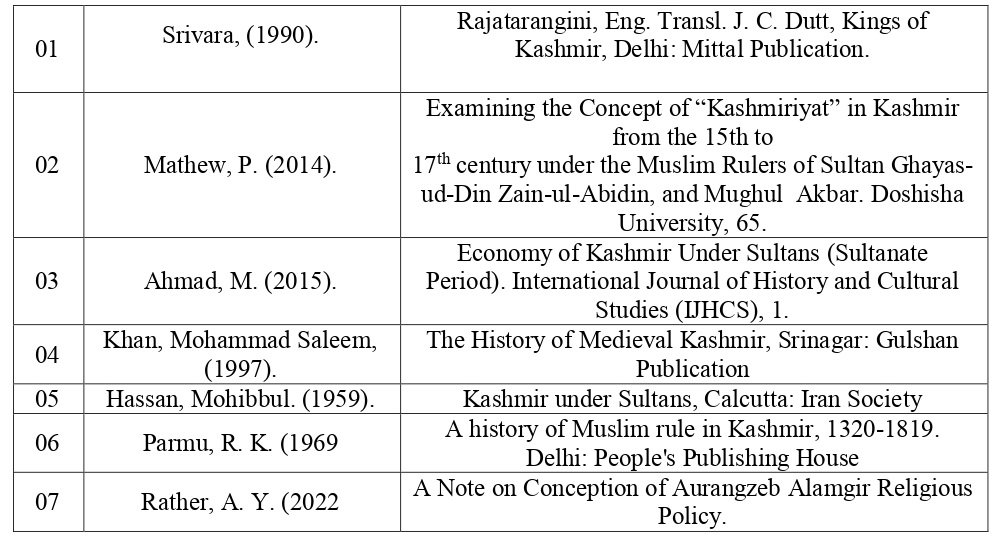Foreign Policy of Sultan Zain-Ul-Abidin
Keywords:
Foreign, Policy, Rajouri. Ladakh, Baltistan.Abstract
Zain-ul-Abidin, also known as Badshah (the great King), ruled Kashmir in the modern-day state of Jammu and Kashmir from 1420 to 1470. When his older brother Sultan Ali Shah embarked for a pilgrimage to Mecca, Shahi Khan, the son of Sultan Sikandar, was left in charge of the realm. However, Ali Shah's father-in-law, the king of Jammu, persuaded him to bring a portion of the Jammu army back to Kashmir from Thatta. After giving Ali Shah control of the country, Shahi Khan grew enraged and went to Jasrath, the Khokkar chief, and refused to leave. Ali Shah was unsuccessful in his mission against Jasrath. Ali Shah was reportedly killed at Chadura after being captured by Khokkars. Shahi Khan took the name Zain-ul-Abidin after he succeeded to the throne. Zain-ul-Abidin is referred to as the greatest of all rulers because of his outstanding rule and reputation (Badshah). The study's objective is to provide an explanation of din Zain-ul-Abidin's foreign strategy. The study has a descriptive and historical tone. The research is qualitative in nature, and to evaluate the qualitative data from secondary sources, it makes extensive use of the thematic software tool.

Published
How to Cite
Issue
Section
Copyright (c) 2022 ISHFAQ AHMAD MIR

This work is licensed under a Creative Commons Attribution 4.0 International License.
